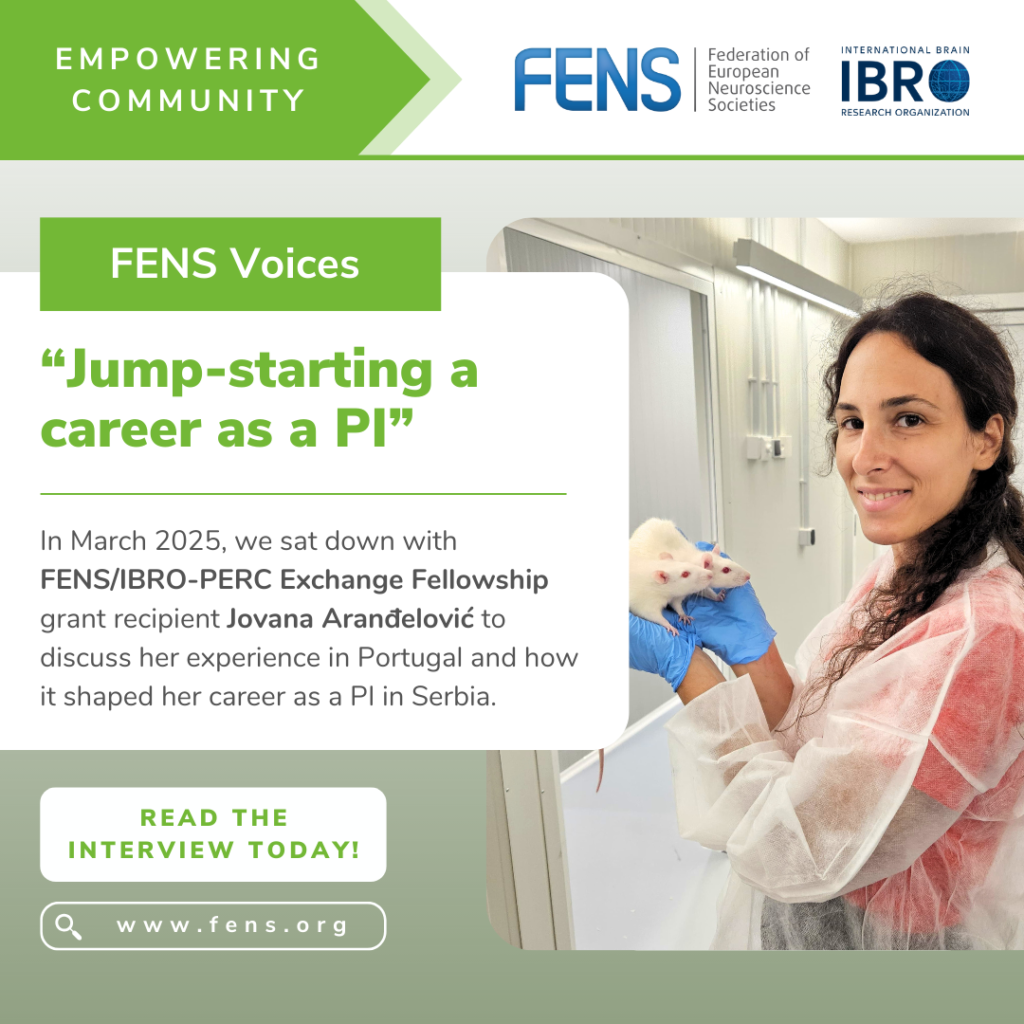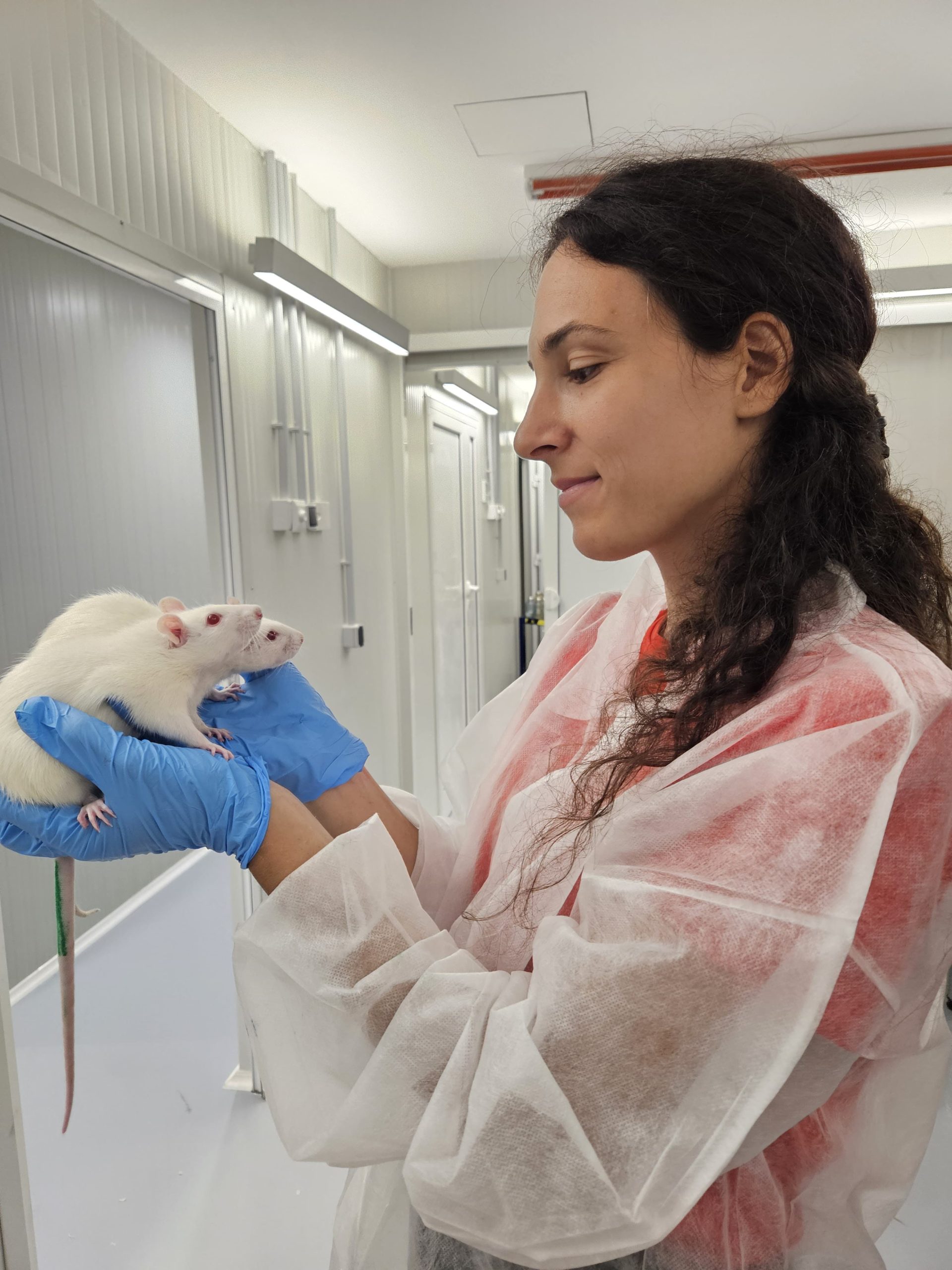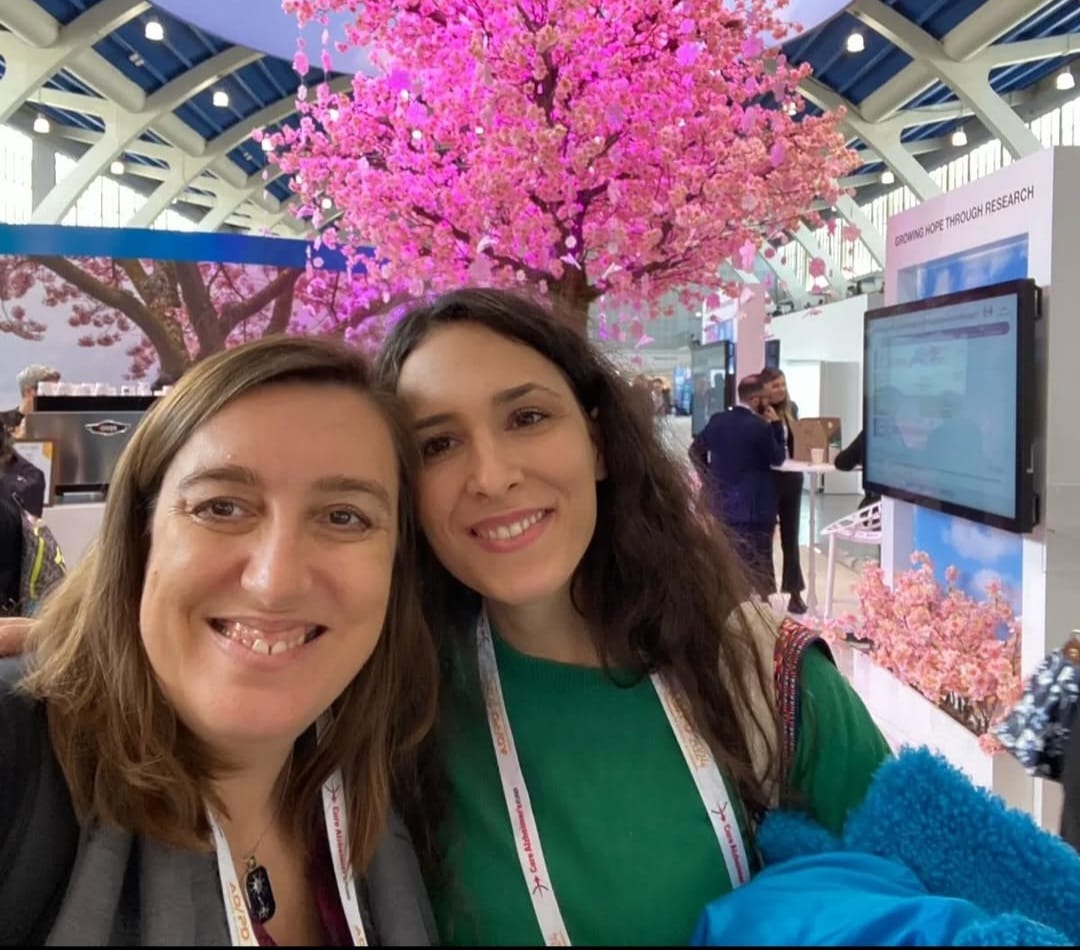
FENS Voices | Jovana Aranđelović: Jump-starting a career as a PI
01 April 2025
FENS News, Neuroscience News
In September 2023, Jovana Aranđelović, PhD, was awarded a FENS/IBRO-PERC Exchange Fellowship Grant to conduct research at NOVA Medical School in Lisbon, Portugal. Under the guidance of Prof. Cláudia Guimas Almeida, she studied synaptic dysfunction in late-onset Alzheimer’s disease (AD) and gained hands-on experience in advanced cell culture, transfection techniques, fluorescence microscopy, and bioimaging analysis.

Her research generated preliminary data for a future publication and strengthened ties between NOVA Medical School and her home institution, the Faculty of Pharmacy at the University of Belgrade, Serbia. After her return to Belgrade almost two months later, Jovana received a starting grant from the Serbian Science Fund, allowing her to begin research on metabolic changes in type 2 diabetes and obesity, focusing on the effects of GLP-1 receptor agonists and GABA-A receptor modulators on cognition.
In an interview with FENS Communication Assistant Quaid Cey in March 2025, Jovana explained how the Exchange Fellowship helped her to forge valuable collaborations, broaden her perspective, and launch her career as a principal investigator (PI).
Read the full interview below.
What motivated you to go into the field of neuroscience?
Jovana Aranđelović: Since elementary school, I wanted to study chemistry and become a researcher. I showed some talent for it and really enjoyed studying it, however, I was influenced by a professor at the Faculty of Pharmacy, who told me about the not-so-pleasant situation in science in Serbia at the time. So, I decided to study medical biochemistry at the Faculty of Pharmacy, just to have a backup option if my scientific career failed.
In the end, it wasn’t a bad choice, since I studied chemistry and biochemistry, as well as subjects like physiology, pathophysiology, immunology, and pharmacology. All of that provided me a more comprehensive and multidisciplinary point of view. I’ve always been fascinated by brain function, cognition, decision-making, and emotional processing, so I wanted to pursue a PhD in neuroscience after I graduated from the Faculty of Pharmacy at the University of Belgrade.
Once you had decided on neuroscience, what areas particularly interested you, and how did they align with the research you did during your fellowship?
Jovana: During my PhD, I studied GABAergic transmission in a mouse model of Alzheimer’s disease. In parallel with that, and during my later postdoctoral research, I worked on other projects, including one Horizon-funded project related to the preclinical assessment of CNS-related side effects of drugs, and another on chronic stress modelling and the modulation of GABAergic transmission in depression-like conditions in rodents. These projects involved behavioural assessments and transcriptomic analyses of brain samples.
In 2021, however, I received a grant for the famous Cajal course on ageing and cognition in Bordeaux, France. I became more interested in the early stages of cognitive decline – i.e. when impairment begins, but symptoms are not fully present. This course gave me my first experience with microscopy and cell culture experiments. My mentor was Prof. Cláudia Gomes Almeida, and I did a hands-on experiment related to lysosomal trafficking in ageing neurons under her guidance. I was quite inspired by her career, enthusiasm, and personality.
I’m very interested in GABAergic transmission in cognitive disorders, particularly GABA-A receptor-mediated transmission, and I wanted to study this at the synaptic level, so I asked Cláudia if she wanted to be my mentor and host me for an exchange fellowship in her lab at Nova Medical School in Lisbon. Since our research interests aligned – she works on cell culture models of ageing and Alzheimer’s disease – we were super happy when I received funding for this research stay.
For those who don’t know much about this fellowship, could you describe the activities involved, your interactions with your supervisor, and any other aspects of your experience?
Jovana: The exchange fellowship had a huge impact on my professional development. I gained hands-on experience in neural cell culture, immunocytochemistry, cell treatments, and imaging techniques, including confocal microscopy. I also improved my soft skills in writing, project management, and implementation. Cláudia helped me a lot with my future research grant, and she, her team, and other researchers at Nova Medical School shared their knowledge with me. Those connections were extremely beneficial.
 I also attended journal clubs, scientific meetings, and lectures, and we had weekly lab meetings. They all accepted me, and we went out for lunch together at noon – it’s a strict custom in Portugal, usually you should be prepared 10 minutes before 12 p.m. I also enjoyed visiting different cities in Portugal and would recommend some of the pastries from Lisbon, like Pão de Deus.
I also attended journal clubs, scientific meetings, and lectures, and we had weekly lab meetings. They all accepted me, and we went out for lunch together at noon – it’s a strict custom in Portugal, usually you should be prepared 10 minutes before 12 p.m. I also enjoyed visiting different cities in Portugal and would recommend some of the pastries from Lisbon, like Pão de Deus.
So, yes – overall, the new scientific environment was important for me, as was networking and all the new skills I gained while there. It was a great experience, and we even prepared some preliminary data for future project applications. I’m truly grateful for this opportunity.
What impact did this fellowship have on your career?
Jovana: This project really marked my career, and I believe it was one of the key factors that helped me get my first starting grant last year. The fellowship demanded initiative, and I improved my writing skills, because I had to write a project proposal for the grant. I believe it was truly impactful for my career and what I’m currently doing – leading a project related to early changes in cognition in the BT2-RET model, which is also related to ageing. I will probably continue to apply for projects with my fellowship mentor, Cláudia, possibly through staff exchanges or other knowledge-sharing initiatives.
So, you not only gained new knowledge through this experience, but you also skills like writing proposals for grants?
Jovana: Yes. That helped me a lot, because later, I had to write a project proposal for my starting grant in Serbia. Cláudia shared some tips on career development, and I followed them. They were very valuable.
How were your interactions with other early-career researchers in Portugal?
Jovana: I can’t stress enough how warm and friendly the researchers and other people in Lisbon were. Cláudia’s team was very international – at the time of my fellowship, there were Jorge, Mariana, Anton, Ángel, and Rafael. They accepted me, they taught me all the necessary laboratory skills when Cláudia couldn’t, they helped me get the equipment I needed, and much more.
One interesting aspect of their lab culture was the “Casual Friday” party, which was attended by PhD students, postdocs, and principal investigators (PIs). I wanted to create something like that at my faculty in Serbia, but I haven’t been successful yet. Hopefully this will also come to Belgrade in the future!
I would also like to mention another researcher who impacted me: Natasha Lontarevic. She and my mentor, Cláudia Almeida, served as role models and helped me a lot during my transition from postdoc to PI.
Once you returned to Serbia after your fellowship, what were your next steps?
Jovana: As I mentioned, I received a starting grant as a PI, funded by the Serbian Science Fund. It was quite a big starting grant, especially in Serbia. Now I have a team of five people, and we’re doing a preclinical and clinical study related to metabolic changes in type 2 diabetes and obesity, as well as the effects of GLP-1 receptor agonists and GABA-A receptor modulators on cognition. The clinical study would serve as a proof of concept of the preclinical study.
Our lab is doing in vivo modelling in rats and transcriptomics of the hippocampus, which relates to the cognitive changes in these types of diseases, and we’re also looking at the interaction between adipose tissue and the brain axis. It’s complex work, and it combines my knowledge of metabolism, medical biochemistry, and neuropsychopharmacology.
What advice would you give to early-career researchers considering this kind of international research experience?
Jovana: It’s super important. I would quote my mentor, Cláudia, who says, “You have to get things done.” I believe this could be applied to every aspect of life, including scientific careers. Especially if you come from a developing country like I do, opportunities may be limited to gain advanced skills. If you’re really into science and you to want to move the field forward and resolve scientific questions, I believe you have to work on finding opportunities, applying, and surrounding yourself with inspiring people.
Connect with people, learn from them and from your experiences, and don’t expect to just get lucky, or that everything will come served to you. I believe everything will come to you eventually, but one opportunity leads to another, and you have to pursue them.
Science is fun, so find the topic that interests you most, explore it, and pursue it through opportunities like the FENS/IBRO-PERC Exchange Fellowship.
What would you tell other early career researchers about the application process, about choosing who to contact, or about where to go on exchange? Do you have any specific tips?
Jovana: I think that most important thing is choosing a project that covers a topic you really like, and I think researchers all over the world would be happy to host you.
This type of opportunity could be extremely important, especially if you want to go for a postdoc for a longer long period, like one or two years.

In my case, the Cajal course in Bordeaux was my first experience with Cláudia, and after that I went for the FENS/IBRO-PERC Exchange Fellowship grant to continue working with her. I would recommend that you try to find a person or a lab – you can also check social networks like Bluesky and Twitter – and ask specific questions relevant to what you want to research and what would be beneficial for your own career and skill development.
I believe it’s important for researchers to go abroad, at least for a short period abroad, so they can broaden their perspective and have a clearer understanding of state-of-the-art techniques, as well as the current situation in science. Also, I would recommend attending conferences and meeting professors in person. That could be one way to choose a mentor.
Regarding the application procedure, I think it’s quite straightforward: you have to write a project proposal, which isn’t too hard. If you have a nice idea, I think you can finish it in two weeks.
I hope that everyone who wants to apply for the fellowship decides to chase this opportunity, because it is highly valuable. Don’t be scared about writing the project proposal, even if it’s your first time.
All in all, the Exchange Fellowship is a very pleasant experience, and I would strongly recommend it.